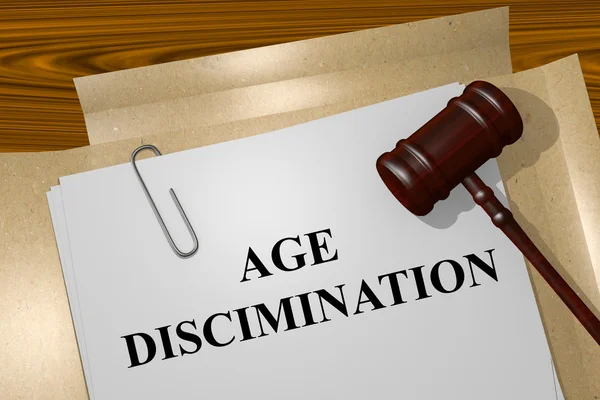If you have suffered an injury in a Michigan accident caused by someone else’s negligence, you may have a personal injury case. While no amount of money can undo what you’ve gone through, filing a claim can help you obtain compensation to cover damages like medical bills, lost income, and pain and suffering.
Hiring an experienced personal injury attorney is essential to building the strongest case and maximizing your payout. However, legal services can be costly, which leads many people to wonder—how exactly are attorney fees structured in injury cases? Read on for an in-depth guide to understanding contingency fees, case costs, factors influencing legal fees, negotiating with lawyers, and finding the right attorney for your situation.
Contents
Contingency Fees: The Norm in Michigan Injury Cases
The vast majority of personal injury attorneys work on a contingency fee basis. This means that instead of paying upfront legal fees as the case proceeds, your lawyer receives a percentage of the final settlement or court award if your case succeeds.
Contingency fee arrangements offer injured victims key benefits:
- Reduced Upfront Costs: You avoid having to pay costly retainers or hourly legal fees upfront before winning the case. This removes financial barriers to justice.
- Alignment of Interests: Your attorney is incentivized to secure the largest payout possible, as their fee is tied directly to your compensation amount. You’re in it together.
- Reduced Risk: If no settlement is reached and you lose the case, you owe your lawyer nothing outside of certain case costs, shielding you from significant legal debt.
There are, however, a few things to keep in mind regarding contingency fees in Michigan:
- Capped Contingency Fee Percentage: Per Michigan State Bar guidelines, the maximum contingency fee lawyers can charge in personal injury cases is one-third or 33 1/3% of the total settlement or award amount.
- Case Costs are Separate: While attorney fees come out of your eventual payout, you may need to front certain litigation costs like court filing fees and expert witness fees during the process. These costs are billed separately.
Understanding the Breakdown of Contingency Fees
To understand how contingency fees actually pan out, let’s break down an example case:
A woman severely injured in a car accident caused by a negligent driver secures a $450,000 settlement with the help of an attorney charging the maximum 33 1??3% contingency fee.
Of the $450,000 settlement, the attorney receives $150,000 for their contingency fee payment. That leaves the client with $300,000 as their final compensation, before subtracting any outstanding case costs.
While handing over $150,000 of a hard-won settlement to your lawyer may seem excessive, remember – without their skillful representation fighting for maximum compensation, you may have received far less than $300k (or nothing). The amplified payout makes the contingency percentage worthwhile for most clients.
Factors That Influence Total Attorney Fees
Several factors impact what percentage of your total payout an attorney ultimately collects in contingency fees:
- Severity of Injuries: More serious injuries requiring extensive care generally equal bigger settlements and thus bigger attorney payouts. Devastating cases can settle into the millions.
- Liability Picture: Clear-cut liability with a negligent party, 100% at fault, often speeds resolution, lowering attorney hours logged. If liability is disputed, more legal work proves negligence, increasing fees.
- Work Involved: Cases demanding extensive litigation requiring multiple depositions, court motions, appeals, and leveraging expert witnesses rack up greater legal effort and fees. Quick pre-trial settlements minimize attorney fees.
- Lawyer Skill and Reputation: Top-tier personal injury firms with proven records of delivering outstanding results can demand higher contingency fees given superior outcomes.
- Local Demand for Lawyers: In smaller communities with fewer practicing injury lawyers, attorneys may raise fees due to lighter competition. More lawyers competing allows you to negotiate lower contingency percentages.
When first meeting with attorneys, ask upfront what percentage fee they charge for contingency arrangements to incorporate into your vetting and price comparisons.
Negotiating Attorney Fees
Discussing fee expectations early is key when consulting with prospective personal injury lawyers. Keep these tips in mind when negotiating:
- Get Quotes from Multiple Attorneys: Outline your injury case details and interview several attorneys from different firms to compare percentage fees charged. Avoid sticking with just the first lawyer you talk to.
- Ask About Case Costs: Get clarity on what specific case costs may apply to your situation and what you must pay upfront vs what gets billed at the end.
- Understand All Billing Specifics: Inquire if non-lawyer staff time, like paralegals, falls under the main contingency fee or incurs separate fees. Also, understand the full payment timeline—some firms don’t collect full fees until case funds are clear.
- Compare Lawyer Experience: While a cheaper lawyer may be appealing, also weigh their case track records. An expert lawyer may secure far more, justifying a higher fee.
- Negotiate Down When Reasonable: If faced with a contingency fee reaching 40% or higher, politely ask if the percentage could be dropped somewhat. Offer win-win options like agreeing upfront to cover more case costs in exchange for a lowered attorney fee percentage.
Finding the Right Attorney: Balancing Costs and Expertise
Remember – your priority is finding an ethical, attentive attorney with a proven history of delivering outstanding case results, not necessarily the one with the absolute lowest fees. Here are other key factors to weigh:
- Years Handling Similar Cases: Based on your situation, look for 5+ years specifically representing personal injury clients in car accidents, slip-and-falls, dog bites, medical malpractice, etc. Veteran experience leads to better outcomes.
- Staff Expertise: Examine the qualifications of attorneys and staff experts like medical consultants, accident reconstructionist, and forensic accountants, who give cases added credibility.
- Communication Practices: Opt for responsive attorneys who proactively provide case status updates, quickly address your questions, and actively involve you in major litigation decisions.
- Availability When Needed: Look for signs of excessive caseloads that may limit attorney attention, such as delays in returning calls/emails or delegating you too often to assistants rather than handling matters directly.
- Strong Client Reviews: Positive testimonials and reviews from past clients indicate attorneys who deliver on service promises and get results. Client references can offer direct feedback on responsiveness, legal skills, and communication habits.
Conclusion
Understanding attorney fee structures in Michigan personal injury cases removes some uncertainty from the legal process. While contingency fees that claim a percentage of your compensation may initially give pause, this billing method incentivizes lawyers to amplify your recovery amount and offers built-in risk protection if your case fails. Weighing fee percentages and projected litigation costs across prospective attorneys while balancing legal expertise and service quality leads you to the best counsel. With a reliable personal injury lawyer in your corner fighting for maximum compensation, you can obtain the financial means to move beyond your accident and regain stability.




